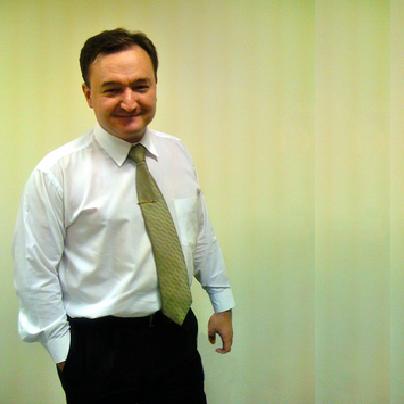UK unveils its first Magnitsky sanctions
Chris Hamblin, Editor, London, 7 July 2020

The UK has acquired its own Magnitsky sanctions regime, a means of ordering the freezing of assets of people whom the Government believes have committed infractions against human rights around the world. On the first list are the alleged killers of Sergei Magnitsky himself (pictured). Importantly, HM Government has resolved to impose the new regime on all the UK's colonies.
Another factor is likely to lead to thousands of 'designations.' In his opening speech Raab made a sweeping claim for the new regime.
"This Government makes it crystal clear to those who abuse their power to inflict unimaginable suffering: we will not look the other way, you cannot set foot in this country and we'll seize your blood-drenched, ill-gotten gains if you try."
There are so many people in the world who take part in decisions to commit abuses of human rights that this statement suggests that a truly staggering number of people will ultimately make their way onto the list.
Saudi and Chinese PEPs in the firing line
Dominic Raab was at pains to fend off people's suggestions for the next tranche of designations, but they kept coming anyway. The Saudi theme was picked up by the shadow Foreign Secretary, Lisa Nandy, who denounced corruption, torture and murder and called in the same breath for "a more consistent approach by the Government to Saudi Arabia and in particular the sales by the UK of armaments that the Saudi Government is using to harm civilians in Yemen."
Other politicians were keen on sanctioning Chinese 'politically-exposed persons' or PEPs. Imran Ahmad Khan (Cons, Wakefield) drew attention to Muslims suffering in Chinese camps and the need to freeze the assets of the politicians responsible for their suffering. Iain Duncan Smith, pausing to give a nod towards sanctions against senior Saudis, said quite rightly that on the issue of China "this is where big business will start to lean on the Government quite hard," meaning that any designation that disrupts commerce with that superpower is likely to inspire large corporations to lobby against it before it appears on the statute book.
Duncan Smith drew attention to the Uyghur suppression, sterilisation and forced encampment and the stripping away of the rights and freedoms of people in Hong Kong. He indicated that many in Hong Kong wanted sanctions to go to "whatever highest level the evidence takes it," suggesting that Carrie Lam (the oppressive Chief Executive of Hong Kong whose relatives, he understood, were in possession of British passports) should be a starting point. Other politicians echoed this desire.
Raab refused to be drawn on the matter but hinted that the Government was indeed thinking of targeting Chinese PEPs.
He mentioned that on 30 June Julian Braithwaite, the UK's Ambassador to the World Trade Organisation and the United Nations in Geneva, delivered a statement on behalf of 27 countries that protested about the human rights situation in Xinjiang and in Hong Kong. He added: "As with China and many other countries, people will wish to come up with further suggestions...and we will consider them very carefully based on the evidence. What I won't do is pre-empt what the next wave of designations will be, but we're already working on them."
Adding corruption to the mixture
Lisa Nandy welcomed the inclusion of trafficking in the measures, after much previous governmental resistance. She was disappointed, however, that Raab had not yet persuaded his colleagues to include corruption in the new regime. She thought that corruption and abuses of human rights went hand in hand, as did others.
He reassured her: "On corruption, the work is already underway. We are committed to doing it. There are different definitions of corruption, which is one of the challenges on the international level."
Later on, he returned to this theme: "The issue with corruption is a legal, definitional one. We want to get it right. We also want to avoid all sorts of people bringing litigation against the Government, either people who are on the list but also to make sure [sic] that we have a firm basis so that we're not judicially reviewed."
The addition of corruption as a basis for sanctions would certainly open the door to a blizzard of 'designations' of (and court cases opened by) HNWs, both in politics and in business. Not only might they be accused of offering bribes to politicians in exchange for various things; they might also be wealthy politicians doing corrupt deals on their own account, as many HNWs at the top of American and Russian politics have been accused of doing. The new regime appears to be infinitely extendable and British politicians seem more than eager to extend it at the earliest opportunity.












